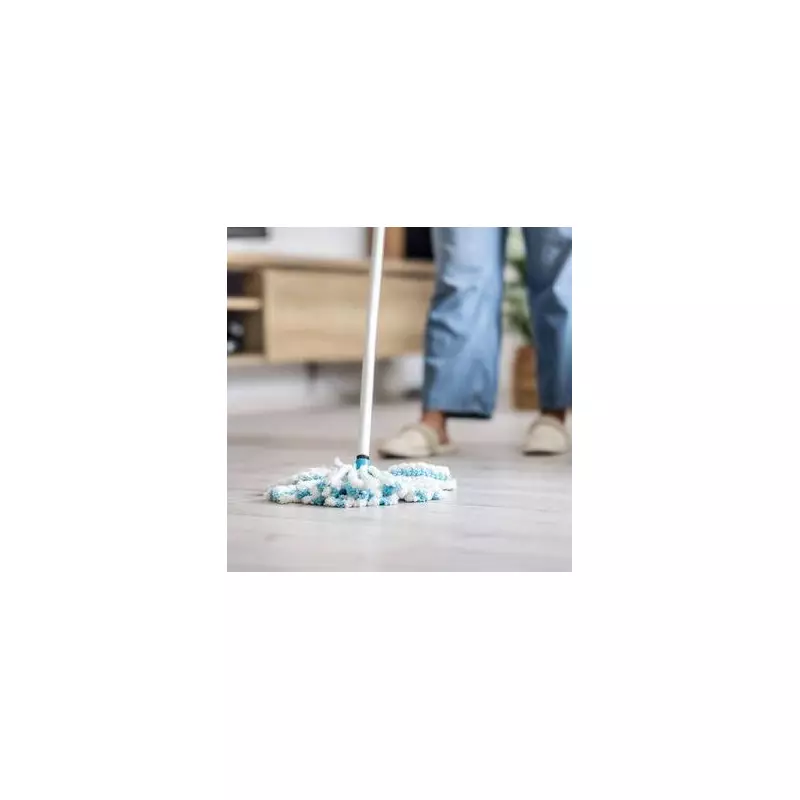
As winter tightens its grip on the UK, our floors bear the brunt of muddy boots, grimy pet paws, and the general mess of the season. Keeping them clean can feel like a constant battle, but two leading cleaning experts have revealed eight simple and effective ingredients you can add to your mop water to cut through grease and grime, leaving your floors spotless and smelling fresh.
The Ultimate Kitchen Ingredient for Fresher Floors
One standout hack involves a common kitchen staple: baking soda. Celebrated for its powerful alkaline properties, baking soda is exceptionally effective at cleaning floors and neutralising stubborn odours. It's also brilliant at tackling dried spills and unsightly scuff marks.
Cleaning expert Sara Aparicio recommends using approximately two teaspoons per gallon of water. "This will create a gentle scrubbing solution that's especially effective on sealed tile, vinyl, and linoleum floors," she explained. "It can also help lift scuff marks, dried spills, and sticky residue without damaging the surface, perfect for deodorising pet areas, entryways, or kitchen floors that tend to trap smells."
Beyond the Baking Soda: Other Powerful Additives
For those seeking a deeper clean with an aromatic boost, essential oils are a fantastic option. Kathy Cohoon, another cleaning specialist, highlights that oils like lemon can break down grease, while tea tree oil offers antibacterial benefits and lavender provides a calming scent.
"Essential oils are an easy way to boost the scent of natural cleaning ingredients like baking soda without causing damage," Cohoon said. She suggests adding them to a mixture of ½ cup of baking soda and a bucket of warm water for a powerful, fragrant clean.
Another classic, lemon juice, uses its natural acidity to lift grime and kill germs. Adding a quarter of a cup to your mop water is particularly effective on tile or vinyl, cutting through soap scum and hard water spots with ease.
Simple Solutions for Busy Households
If you're short on time, common dish soap is a remarkably effective alternative. Cohoon advises that just a few drops can go a long way. "It is designed to cut through grease, lift dirt, and break down sticky residues," she noted, adding that it's perfect for kitchen floors. A word of caution: use only one to two teaspoons per gallon to avoid a sudsy buildup.
For a truly natural approach, don't throw away your citrus peels or herbal tea bags. Sara Aparicio suggests boiling leftover peels in water, straining the liquid, and adding it to your mop bucket. "The natural oils in citrus peels help cut grease and leave a fresh, fruity scent," she said. Similarly, steeping peppermint or chamomile tea bags and adding the liquid to your bucket can provide a gentle clean and pleasant aroma.
White vinegar remains a powerhouse in the cleaning world. Kathy Cohoon recommends a homemade solution of one part white vinegar to ten parts warm water. "The addition of white vinegar not only cleans but also freshens floors and acts as a natural cleaning agent with antibacterial properties that deodorise," she explained.
For a gentler clean, consider Castile soap. A teaspoon of this plant-based soap, traditionally made from olive oil, mixed into a bucket of warm water can help break up tough stains without harsh chemicals.
Of course, a commercial floor cleaner is always a reliable and straightforward option. "These cleaners are designed to clean and deodorise in one step," Aparicio said, reminding users to always follow the label instructions for dilution.
With these eight expert-backed hacks, achieving sparkling, fresh-smelling floors this winter is simpler than ever. The only remaining challenge will be keeping everyone off your beautifully clean surfaces.





